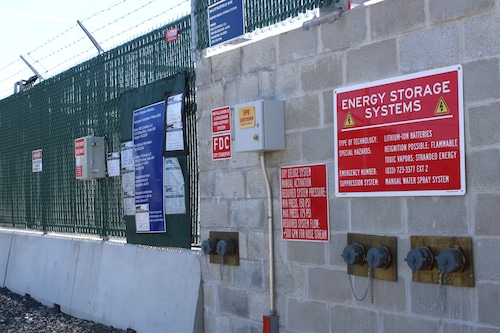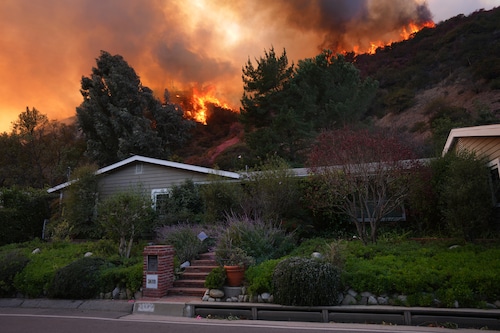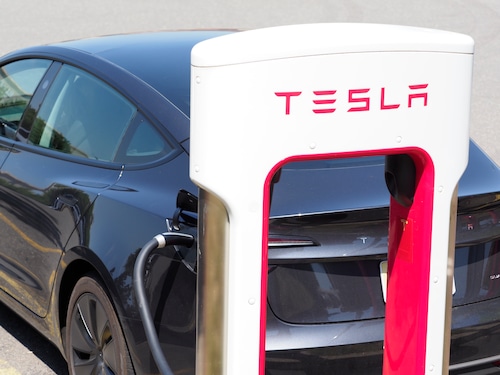New York’s Staten Island — Developers hailed the lithium-ion structures as quiet neighbors that were an essential force for renewable change when battery energy storage systems (BESS) started to appear in a number of NYC neighborhoods in 2022. They claimed that the BESS would relieve pressure on the city’s overburdened grid and assist the state in achieving some ambitious environmental goals.
However, borough residents expressed their worries as utility-scale energy installations were proposed for school zones and placed close to gas stations, and as a number of Staten Island homes were demolished to make way for colonies of solar-powered pods.A moratorium on BESS applications submitted within residential districts was imposed by elected officials after community boards decided against their close proximity to bakeries and businesses. In one case, an energy developer withdrew plans to install batteries in a church parking lot in Bulls Head.
Nevertheless, the structures’ plans continued, and dozens of municipal land plots were designated as BESS locations. Despite the fact that the majority of project opponents concur that NYC requires a green energy solution, they are also calling for the solution to be constructed further away from their backyard.
More than a dozen energy storage sites are presently being considered for Staten Island after two years of this contentious project, with many of them expected to receive more than $1.5 million in incentive payments from the New York Energy Research and Development Authority (NYSERDA).
Here is an update on the progress of battery energy storage on both the North and South coastlines, as well as a look at some of the significant BESS milestones that took place in 2024:
Governor Kathy Hochul issues safety guidelines for locations that store battery electricity.
Initial recommendations from the Inter-Agency Fire Safety Working Group, which was established in response to fires at battery energy storage systems in Jefferson, Orange, and Suffolk counties, were made public by Governor Kathy Hochul in February. A peer review for every project, the elimination of a fire code exemption for electrical utility-owned or controlled facilities, and required first responder training for each BESS installation were among the group’s recommended modifications.
When contentious battery locations are constructed in NYC, FDNY cities must be represented at the table.
During a battery awareness panel discussion at a sustainability seminar organized by the Staten Island Economic Development Corporation (SIEDC) in February, the FDNY mentioned the need to be better equipped to handle BESS crises.
During the panel discussion, New York City Fire Department Chief Fire Marshal Daniel Flynn stated, “We need to be aware of where they are installed, our units need to know what they’re walking into, because it may impact the way we fight these fires.” We need to assess how this will affect the fire department, so please sit us at the table when the conversation takes place.
Plans for a new $40 million battery energy storage facility next to Outerbridge Crossing have been announced by the developer.
The New York City Industrial Development Agency (NYCIDA) was asked to provide finance for the projects of the developers of five new NYC BESS systems, one of which is planned to be built on a 15,910-square-foot plot of land in Tottenville, which is situated in the shadow of the Outerbridge Crossing.
Authorities are incensed about the proposed Victory Boulevard battery site.
Plans to build another lithium-ion battery energy storage site on a vacant lot at 1963 Victory Blvd., close to a strip of businesses and next to a number of private residences, were opposed by Borough President Vito Fossella and Councilman David Carrden. Developers submitted plans in March to construct a 10,000-square-foot facility that would contain four lithium-ion battery megapacks at the property, which is situated on the boundary between Westerleigh and Castleton Corners.
NYC is exempt from the new BESS safety regulations.
NYSERDA acknowledged in March that BESS projects situated inside the boundaries of New York City will not be subject to the higher safety criteria suggested by Hochul’s Inter-Agency Fire Safety Working Group.
Funding for two new battery storage locations on Staten Island has been approved by NYC.
In April, NYCIDA declared that it has approved funding for four battery energy storage systems in New York City. According to the organization, two of the four projects that have been approved for funding will be located on Staten Island: one at 4838 Arthur Kill Road, which was the location of the former Country Estate Kennels, close to the Outerbriddge; and the other at 4401 Victory Blvd. in Travis, where a 15.1MW gas turbine at the Arthur Kill Generating Station will be retired.
Thirteen additional BESS stations are planned for Staten Island, according to new statistics.
The Advance/SILive identified 13 additional lithium-ion battery energy storage sites for Staten Island that are now in the works, each of which is expected to receive more than $1.5 million in incentive awards and be operational within the next several years, after analyzing a new NYSERDA dataset in May. These newest BESS sites will be built in a variety of commercial, residential, and industrial areas, some of which are less than a half-mile from one another. They are dispersed across eight distinct communities, some of which are grouped on the South Shore and others which are dispersed throughout the North Shore communities of Mariners Harbor, Concord, and West Brighton.
The largest battery storage facility in New York City will soon be built in Travis, according to the developer.
In June, Eric Cherniss, head of development at Elevate Renewables, revealed his company’s plans to build a 15 MW/60 MWh battery storage infrastructure project at the Arthur Kill Generating Station in Travis. The project will install the newest energy storage technology on the site of a former power generation plant.
The current generating facility, which is scheduled to retire in 2025, will be replaced by the project, which is situated at 4401 Victory Blvd. The developer claims that when the plant is finished, it will be able to supply electricity to over 10,000 families during periods of high demand.
The governor declares that the state’s energy storage program will be doubled.
Hochul declared in June that a new framework for the state’s energy storage goal of six gigawatts by 2030 had been approved by the New York State Public Service Commission. This move would double New York’s initial energy storage goal and probably add numerous new lithium-ion charged projects throughout the state and New York City.
SILive battery site coverage
-
NYC official outlines highly regulated protocols for battery energy storage sites on Staten Island
-
Largest battery storage site in NYC will soon rise in this Staten Island neighborhood
-
Map details locations of battery sites on Staten Island: See if one is planned for your block
-
Over a dozen additional battery energy storage sites planned for Staten Island, new data shows
Note: Every piece of content is rigorously reviewed by our team of experienced writers and editors to ensure its accuracy. Our writers use credible sources and adhere to strict fact-checking protocols to verify all claims and data before publication. If an error is identified, we promptly correct it and strive for transparency in all updates, feel free to reach out to us via email. We appreciate your trust and support!






+ There are no comments
Add yours